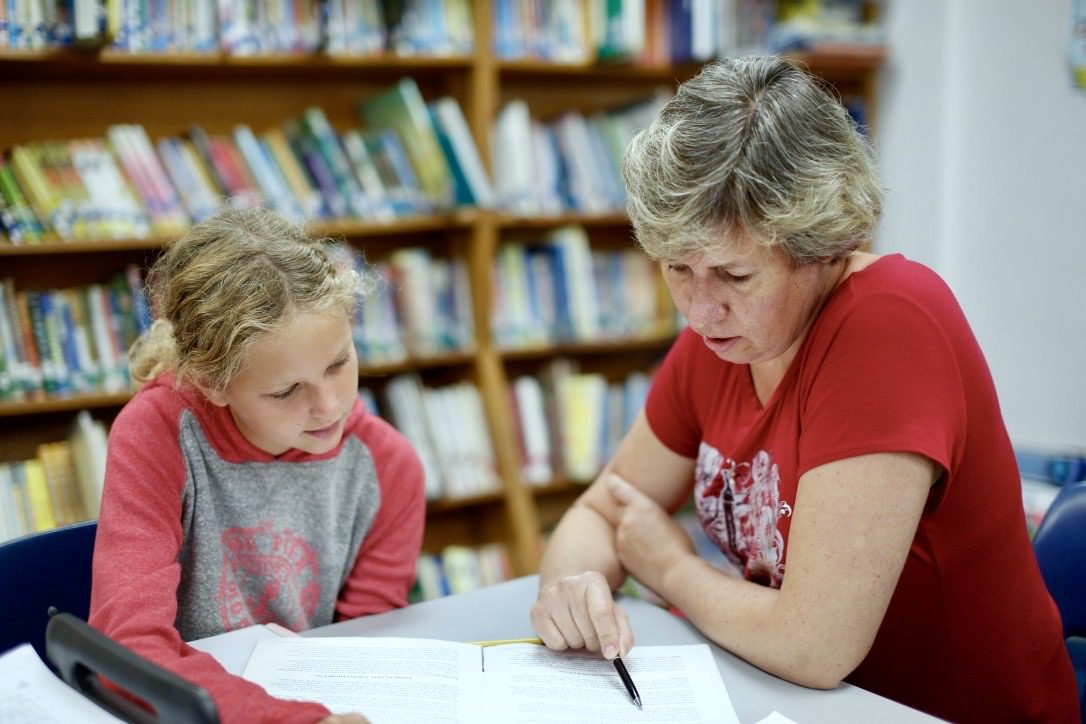Discover Our Comprehensive Curriculum
Curriculum
The curriculum is designed and built on our philosophy of education. It is developed and published by Heron Books, originally for the Delphi Schools Network with the purpose of researching and developing an entire K-12 school curriculum. Through the Middle School level, there are over 300 courses covering the full spectrum of academic subjects designed to work in conjunction with the study and teaching methods used within the program. A rigorous mastery of the basics forms the core of the curriculum, with the complete program developing a wide spectrum of skills and knowledge in cultural, scientific, and social subjects.
A map of the particular curriculum at each academic level is available through the Admissions Office.


Focus on Study
All students begin the curriculum with courses on how to study, whether they are coming for just the summer program or are year-round students. Using the Study Technology (please create a link for Study Technology and link it to the Study Technology page) developed by American philosopher and educator L. Ron Hubbard, students are put firmly in the driver’s seat for learning. Mr. Hubbard identified barriers to study an individual may face when trying to learn something new, but more importantly, he developed methods to overcome these barriers, which any person can apply. With these methods, Delphi students learn how to recognize when they don’t understand something and what to do about it.

Focus on Study
All students begin the curriculum with courses on how to study, whether they are coming for just the summer program or are year-round students. Using the Study Technology (please create a link for Study Technology and link it to the Study Technology page) developed by American philosopher and educator L. Ron Hubbard, students are put firmly in the driver’s seat for learning. Mr. Hubbard identified barriers to study an individual may face when trying to learn something new, but more importantly, he developed methods to overcome these barriers, which any person can apply. With these methods, Delphi students learn how to recognize when they don’t understand something and what to do about it.
A Comprehensive Curriculum
The Delphi program includes a fully-rounded curriculum available for all age levels. Even the very youngest students are exposed to basic concepts of science, history, and the various humanities. In addition to traditional academic subjects, students get training in practical areas such as communication, manners, computers, nutrition, and organization. Ethics, logic, and research, often considered advanced topics, are not only offered but are begun early on.
Practical Application
We use an integrated approach. Students delve into a wide variety of academic subjects that have been presented in a way that both parallels and accesses the real world. No subject is isolated, and all subjects require the student to engage in explorative, hands-on activities, both inside and outside of the classroom. At the lower levels, this hands-on approach can be found in the many field trips students take, in the “projects” they tackle, and in the emphasis throughout the day on practical activities. In the Elementary and Middle Schools, “projects” become more involved, and field trips are often more extended. Middle School students can even take on apprenticeships, allowing them to align their academic work towards their own goals and areas of interest.
Individualized Programs
Shortly after enrollment, every Delphi student works with the faculty to create a study program based on his interests, strengths, and weaknesses, as determined in interviews and through diagnostic testing. Some students arrive at the school with one or more “holes” in their existing education, and part of the initial task is to identify these holes and plan a “repair” lest the holes grow larger as they continue their education. Then the student can embark on his full (and still individual) academic program.
A student moves as quickly through the program as he wishes, as long as he ensures along the way that the material studied is not only understood but can also be applied. Practical application is a significant element of the Delphi approach and accounts for a good percentage of the student’s activities, particularly in the upper levels.
As they progress through the Upper School, students begin to focus on their particular areas of interest by selecting an area of specialization such as science and technology, the humanities, business, or fine arts. This is the culmination of the whole program—professional preparation for whatever the student’s next steps in life will be.
